 I believe that history has a funny (not always ha-ha) way of repeating itself, both personally and globally. It makes me feel better when I catch myself seemingly repeating the same behaviors over and over again to think that it isn’t just me slipping into those old patterns. You do it too, right?
I believe that history has a funny (not always ha-ha) way of repeating itself, both personally and globally. It makes me feel better when I catch myself seemingly repeating the same behaviors over and over again to think that it isn’t just me slipping into those old patterns. You do it too, right?
History repeats itself because we often (usually subconsciously) seek out excuses in order to justify acting a particular way:
*Well, because I only quit smoking for a year last time, the likelihood is that I won’t really make it that far this time.
*I always eat too much over the holidays so I assume I’ll do the same this year.
*I’m typically weak when it comes to that ex-him or her, so the likelihood is that I’ll sleep with them again if they come knocking.
Let’s take this simple concept that most of us would agree upon a step further. C.G. Jung suggested that there is a direct correlation between my personal process and the process of humanity as a whole. Somehow the decision tree whereby I calculate the choice not to sleep with that person because I can choose a better path now as opposed to before is indeed a universal progression not limited to my own little drama. Isn’t it yours as well…?
 “An archetypal image transmutes our personal destiny into the destiny of humankind” (Collected Works of C.G. Jung, 15/129). A common symbol, idea, experience, even a common dream, has the ability to connect my inner and outer world with your inner and outer world, linking my personal journey to the path of humanity as a whole. There is a certain magic to this concept that makes the world an even more fascinating, more alchemical place to live.
“An archetypal image transmutes our personal destiny into the destiny of humankind” (Collected Works of C.G. Jung, 15/129). A common symbol, idea, experience, even a common dream, has the ability to connect my inner and outer world with your inner and outer world, linking my personal journey to the path of humanity as a whole. There is a certain magic to this concept that makes the world an even more fascinating, more alchemical place to live.
Alchemy is the ancient study (some adepts would suggest practice) whereby putrifaction leads to the transmutation of matter, most notably of metals into gold. The notion that we can seemingly convert static objects and states like stone or metal into a state of change and transformation was a process that intrigued many people before we were given the brain-numbing answer to free time and boredom, reality television. People living only a hundred years ago used to pursue the alchemical mysteries like folks today chase dreams of creating an internet start-up company or a new app for a smart phone.
It was commonly believed that for a person to attain the knowledge whereby an alchemical conversion was possible, a deep process of self-realization and personal development was essential. In this technologically advanced age, video games, Facebook, Twitter and TV in general, not just the reality kind, are things one would arguably need to suspend during the intensive, introspective, transformational process. Creating gold out of old Matchbox cars and cell phones takes focus. Some would say it requires a degree of enlightenment.
The Latin definition of Alchemy, Solve et Coagula can be translated as separate and come together, dissolve and coagulate. Those are VERY intriguing words for a psychotherapist, and I imagine for many others as well.
Jung suggested that the alchemy of the Self is a process whereby the individual exfoliates, even burns, layers of the self away to reveal the truest, most enlightened, version of our being. Alchemists of the Middle Ages believed that the person who could turn common metals into gold would need to have discovered a panacea, a veritable elixir of life, because it would necessarily be the universal solvent that when mixed with whatever form of matter, creates a metaphysical play dough that can be shaped into whatever the Alchemist chooses.
Following this so far? It’s the key to eternal life (and a reduced need for psychotherapy) so stay with me.
In order to transform the self I have thus far manifested in my relationships, my thoughts and in my life story, I need to uncover a personal elixir, a universal substance (or idea) that allows me to dissolve the places I am stuck and then draw together my broken pieces into a new, more empowered and enlightened form. That’s what I do when I do the work on myself to change old patterns that create harm or hurt for myself and others: I dissolve the old and form new ways of relating. It is also the process I personally strive to facilitate for clients each day in their therapeutic discovery and psycho-analysis.
Which brings me back to Time. I have a tendency (as do many good humans) to view my life historically, through the relationships I have created, maintained and dissolved. I conduct this self-analysis by understanding those connections through the context of time and space as well as my judgment of how I conducted myself in those situations. Hopefully, I view my past in terms of events and behaviors I want to learn from and improve.
For example, “I was a real jerk to that person in college, but I was just a kid trying to figure things out…”
“I ended up having that affair back then because I was longing for love and partnership but I wasn’t fully capable of committing so I chose someone who wasn’t truly available… “
“I chose to marry my husband or wife because I had done enough work on myself, dissolved and coagulated, and felt capable of creating a new version of who I am throughout time and space that, like gold (and Frosted Lucky Charms), I perceived to be magically delicious.”
There is a recursive regression that occurs in and for my self out of my own alchemical process whereby I transform myself in this moment as a result of a series of similarly transformational but static moments in my past. Like Bill Murray in “Groundhog Day,” recursion suggests that I am able to define my present state of conscious awareness by relying on a series of moments from the past when I believed I was indeed fully conscious. And yet, like two mirrors facing each other, I am able to see the mirror exactly in front only combined with a series of reflections of the same mirror somehow projected within the image. 
Is it possible to perceive the changes I am making right now in the way I do “me” outside of or separate from the moments in my past when I was also conscious of change happening?
Is this possible without a universal solvent? Is there a panacea that allows me to solve et coagula?
There must be some common denominator throughout time and space that allows me to view myself as a self-aware person within a process of transformation. Relying upon this element, I build each moment of transformation upon itself, erecting a metaphysical slinky that when stretched and pulled forward enough, eventually snaps all of my past experiences and internal movements of consciousness forward in an instant. It soars through time and space and slams into the present moment at a grand, alchemical intersection of evolution, transformation, and perhaps even enlightenment. It changes us forever.
 As we begin another year in the life, I’d like to invite you to take some time in the coming weeks to consider what constant has existed throughout your life that has helped you dissolve and coagulate. Perhaps it is not something you have ever contemplated and yet it might be something worth identifying, appreciating and nurturing as you move forward on your personal path to self-realization. What idea or belief, physical place, activity, relationship, etc. has truly served as a catalyst for growth and transformation in your life? Are you aware of your universal solvent? Perhaps it is time to become aware and pull the slinky of change forward…
As we begin another year in the life, I’d like to invite you to take some time in the coming weeks to consider what constant has existed throughout your life that has helped you dissolve and coagulate. Perhaps it is not something you have ever contemplated and yet it might be something worth identifying, appreciating and nurturing as you move forward on your personal path to self-realization. What idea or belief, physical place, activity, relationship, etc. has truly served as a catalyst for growth and transformation in your life? Are you aware of your universal solvent? Perhaps it is time to become aware and pull the slinky of change forward…
Happy New Year!!!
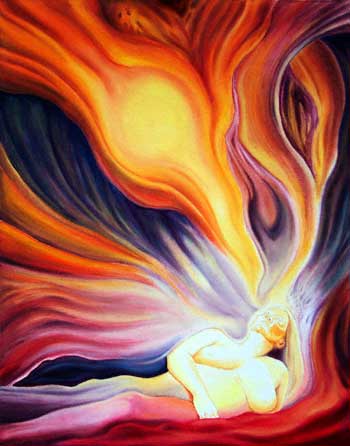
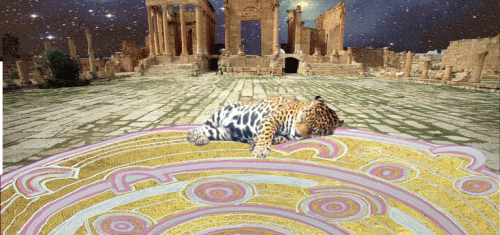



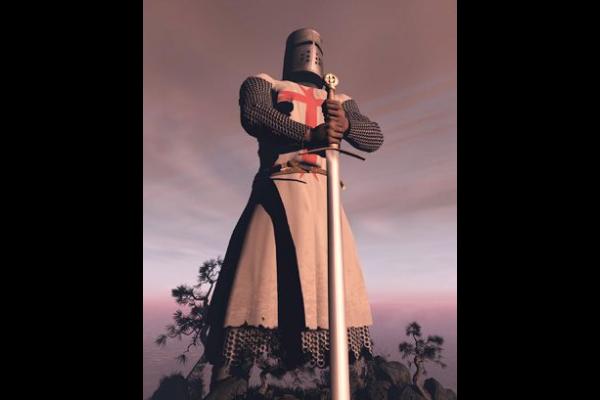

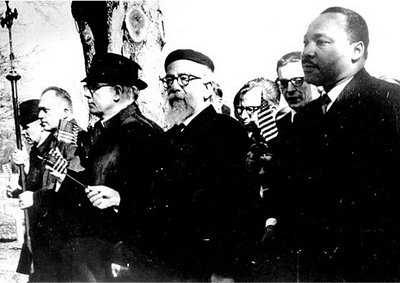
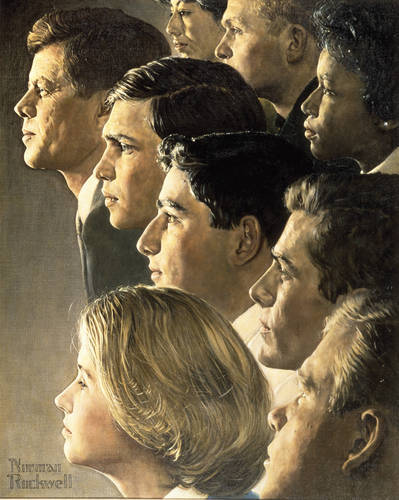 I hope that more people take the notion of socially conscious “paladinism” seriously as we move farther down the road of personal responsibility when it comes to finance, education, spirituality, and so forth. When a tragedy like the one this month in Tucson serves more to separate the “parts” of our democracy rather than unite us, I fear that there is nowhere near enough “praying with our legs” happening in our great nation.
I hope that more people take the notion of socially conscious “paladinism” seriously as we move farther down the road of personal responsibility when it comes to finance, education, spirituality, and so forth. When a tragedy like the one this month in Tucson serves more to separate the “parts” of our democracy rather than unite us, I fear that there is nowhere near enough “praying with our legs” happening in our great nation.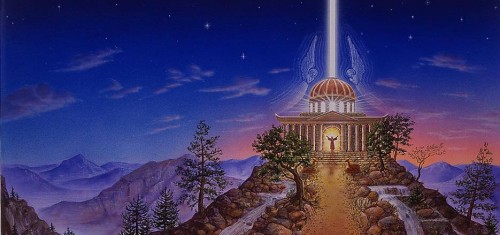

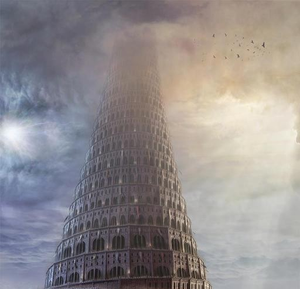 Today there are surely billions of people who are still concerned with their souls in the afterlife and who derive a sense of meaning from their respective religions or beliefs. Yet, I am unsure as to whether there is a unifying, universally coherent, common purpose for us all; something that draws us all together. Was the notion of the Tower of Babel (one of my favorite parables) merely about language or was there a deeper, existential notion of DIFFERENCE?
Today there are surely billions of people who are still concerned with their souls in the afterlife and who derive a sense of meaning from their respective religions or beliefs. Yet, I am unsure as to whether there is a unifying, universally coherent, common purpose for us all; something that draws us all together. Was the notion of the Tower of Babel (one of my favorite parables) merely about language or was there a deeper, existential notion of DIFFERENCE? I believe that history has a funny (not always ha-ha) way of repeating itself, both personally and globally. It makes me feel better when I catch myself seemingly repeating the same behaviors over and over again to think that it isn’t just me slipping into those old patterns. You do it too, right?
I believe that history has a funny (not always ha-ha) way of repeating itself, both personally and globally. It makes me feel better when I catch myself seemingly repeating the same behaviors over and over again to think that it isn’t just me slipping into those old patterns. You do it too, right? “An archetypal image transmutes our personal destiny into the destiny of humankind” (Collected Works of C.G. Jung, 15/129). A common symbol, idea, experience, even
“An archetypal image transmutes our personal destiny into the destiny of humankind” (Collected Works of C.G. Jung, 15/129). A common symbol, idea, experience, even 

 As we begin another year in the life, I’d like to invite you to take some time in the coming weeks to consider what constant has existed throughout your life that has helped you dissolve and coagulate. Perhaps it is not something you have ever contemplated and yet it might be something worth identifying, appreciating and nurturing as you move forward on your personal path to self-realization. What idea or belief, physical place, activity, relationship, etc. has truly served as a catalyst for growth and transformation in your life? Are you aware of your universal solvent? Perhaps it is time to become aware and pull the slinky of change forward…
As we begin another year in the life, I’d like to invite you to take some time in the coming weeks to consider what constant has existed throughout your life that has helped you dissolve and coagulate. Perhaps it is not something you have ever contemplated and yet it might be something worth identifying, appreciating and nurturing as you move forward on your personal path to self-realization. What idea or belief, physical place, activity, relationship, etc. has truly served as a catalyst for growth and transformation in your life? Are you aware of your universal solvent? Perhaps it is time to become aware and pull the slinky of change forward…

 Jeffrey Sumber is changing the world, one relationship at a time. For over two decades, Jeffrey has worked to understand the human experience from as many angles as possible. As a successful psychotherapist, marriage counselor, and life coach, Jeffrey has worked with thousands of clients who strive to live their best lives.
Jeffrey Sumber is changing the world, one relationship at a time. For over two decades, Jeffrey has worked to understand the human experience from as many angles as possible. As a successful psychotherapist, marriage counselor, and life coach, Jeffrey has worked with thousands of clients who strive to live their best lives.
Recent Comments